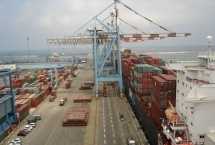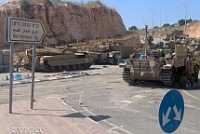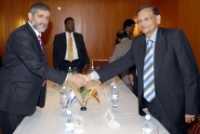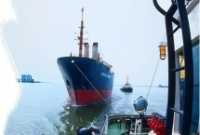The committee criticized the functional failures of Haifa and Ashdod Ports during the war. It also criticized the bad working relations among the different transport sectors
The Tunik Committee, a public inquiry committee, headed by attorney Yehuda Tunik, which was established after the Second Lebanon War by Transportation Ministry Director General Gideon Siterman to study operational failures at the ports and transport network, handed its findings to the Minstry last week.
The committee submitted its findings and recommendations on the transportation sector as a whole, and focused mainly on failures by the ports. The report makes no personal conclusions about the ports’ managers, but the Ministry says that they should draw their own conclusions from the findings.
The committee sharply criticized the functional failures of Haifa and Ashdod Ports during the war. It also criticized the bad working relations among the different transport sectors and a lack of national comprehensive coordination.
In particular, it sharply criticizing the poor relations between the individual port companies Haifa and Ashdod and the Israel Ports and Assets Company and between port workers and ports management.
The report says that the government’s declaration of “special situation on the home front” was insufficient to fully authorize the authority for the provision of essential services, in view of the fact that 95% of Israel’s foreign trade is handled by the ports.
The committee criticized the Home Front Command, the Defense Ministry's "emergency economy" division and Israel Railways. In addition, it directed strong criticism at senior officials of the Ministry of Transportation, emphasizing the absence of a central entity with the authority and responsibility for coordinating the activities of the various transport organizations.
The public inquiry committee's report listed the following main failures:
- The lack of an emergency contingency plan for the operation of all transport systems in wartime situation.
- No contingency plan for the operation of one port during wartime situation.
- Israel Railways suspended all train service, including cargo, in the north, thus reducing cargo service to and from Haifa, disrupting shipments.
- There were severe problems in the coordination and mutual support between the ports, including the transfer of equipment and personnel as well as Severe problems with Ashdod Port employees.
- Shortage of terminals for hazardous materials and a shortage of storage space for cargo, resulting in heavy charges to port users.
The public committee came up with two main conclusions:
- To set up a national emergency transport center to coordinate all security services at the ports and shipping.






